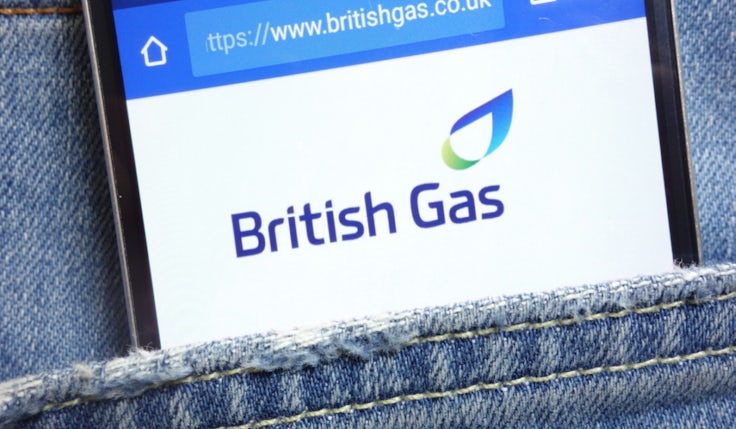Energy firms struggle with brand health as turbulent 2023 looms
After a tough 2022, energy companies are going into next year with diminished brand health and uncertainty about what 2023 might bring for the challenged sector.

It would be an understatement to say 2022 was a challenging year for the energy sector. The traditional “big six” companies, as well as newcomers Octopus and OVO Energy, all have weakened brand health going into 2023, which looks set to be another turbulent year.
Indeed, Octopus is the only large energy company to have recorded consistently positive brand health indicators across 2022, according to data from YouGov’s BrandIndex.
Since August 2021 27 UK energy suppliers have gone bust as a result of a dramatic rise in wholesale prices post-pandemic, representing around half of all companies previously in the market.
Those companies still operating have also had the impact of the war in Ukraine to deal with, which has restricted the amount of oil coming from Russia and led to prices being driven up. As a result, energy regulator Ofgem raised the energy price cap by 54% in April, followed by a further 27% increase in October. A further 20% increase is planned for April 2023.
Consumers have less choice and are paying, in most cases, much more money for energy than they were this time last year. In this environment, it is hardly surprising the health of energy brands have plunged across the year.British Gas’s brand health worsens as profits swell
At the beginning of this year, Octopus achieved an index score of 10.4 for the month ending 19 January 2022. YouGov’s index score is a measure of total brand health using an average of a brand’s impression, value, quality, reputation, satisfaction and recommend scores.
Ovo, which is now the second-largest electricity supplier and the third-largest gas supplier in the UK after acquiring the customers of a number of collapsed rivals, was the only other brand to be in positive figures at the start of the year, with a score of 1.3. The UK’s largest energy supplier, British Gas, scored -1.6.
The most recent index scores show an almost eight point drop for British Gas. As of the month ending 19 December 2022, its score was -9.3, the lowest of any of the major energy suppliers tracked. Ovo has also declined into the minus figures, scoring -1.
Octopus’s brand health has also declined from the first month of the year to the last, but more modestly, scoring 9.5 in December.
Interestingly, all the energy companies saw a decided dip in their brand health in the summer. Between 20 July and 19 August, Octopus’s brand index score was 4.2, and then 4.5 for the month following. By the month concluding 19 October, it had rebounded to 9.3.
Similarly, British Gas saw a considerable decline over this period. For the month ending 19 July, its score was -7.7. By the August to September period this had declined by almost eight points to -15.1, the lowest monthly index score recorded out of all the brands.
By the time the summer arrived in the UK, the combined conditions affecting the energy market had begun to set in, with customers looking with trepidation towards the winter.
In early July, Citizens Advice found customer service from energy companies had dropped to an all-time low, suggesting many customers were paying more for worse experiences. Citizens Advice gives energy brands an average star rating from one to five based on factors like call waiting times, ease of switching suppliers and number of complaints made. Earlier this year the average star rating for energy companies dropped to 2.8 out of 5, which was reflected in declining customer satisfaction scores at the time.
Decline of the big six brands?
The dominance of the big six energy suppliers – British Gas, E.ON, EDF Energy, Npower, Scottish Power and SSE – also appears to be coming to an end, as newer firms Ovo and Octopus gobble up market share.
Npower has been acquired by E.On and SSE’s energy supply business has been bought by Ovo. These continued to operate as brands in 2022, however YouGov stopped tracking Npower through its BrandIndex platform in May.
As of the second quarter of 2022, Ofgem reported that four of the big six (excluding the now-defunct operators Npower and SSE) had a 58.4% share of the electricity market and a 60.2% share of the gas market.
Ovo’s takeover of SSE has given it 13.6% and 11.3% shares in the electricity and gas markets, respectively, while Octopus currently has an 11.2% share of the gas market and a 10.9% share of the electricity market.
Octopus is set to become even bigger, with the supplier completing its acquisition of collapsed company Bulb this week and taking on its 1.5 million customers. This gives Octopus approximately another 5% share of the markets in both electricity and gas, based on figures from the second quarter.
British Gas remains by far the biggest electricity and gas supplier, with 20.3% and 28.2% shares of each market, respectively. It is therefore one of the best known brands in the sector, but, according to the BrandIndex tool, it is no longer perceived as a ‘quality’ brand.
Energy firms see brand health tumble amid ‘deteriorating’ customer service
YouGov asks consumers if they think a brand represents good quality or poor quality. At the beginning of the year, British Gas scored 4.9 for this measure, second only to Octopus’s 11.7.
By March, British Gas’s score had dropped into the negatives. In the month ending 20 December it scored -2.9, a drop of six points and the lowest quality rating out of all the brands analysed. By contrast, Octopus has managed to keep this measure fairly constant, ending the year at a score of 11.2.
Since January, Ovo Energy has been the second highest rated energy supplier in terms of quality. However, unlike Octopus the brand did not manage to keep this score positive throughout the year, dropping into the negatives over the summer. Its average quality score is now -0.1.
While Ovo has lagged behind rival Octopus on many measures of brand health, such as index, value and impression, it consistently ranks second across these measures.
However, as these companies grow, it may become more difficult to keep up these strong brand metrics. 2022 was more challenging for the energy sector than could have been predicted, with 2023 set to be just as tough.







